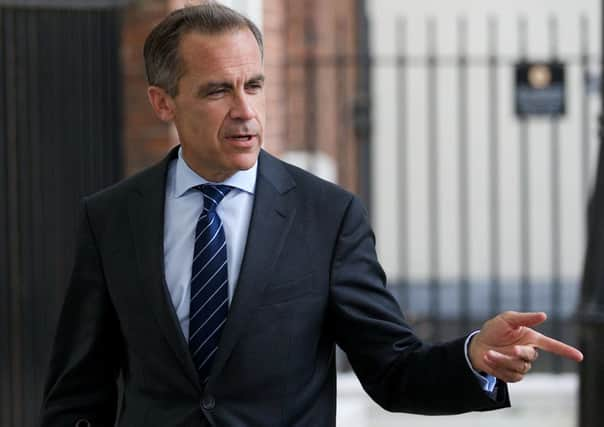Interest rates and mortgage costs set to rise


An interest rate increase is on the cards before the end of the year after the governor of the Bank of England last week warned that rises “could happen sooner than markets currently expect”. The next rate rise was previously expected to be in early to mid-2015.
Mark Carney’s remarks were a boost for long-suffering savers, but for many homeowners they mean that time may be running out to secure a cheap mortgage deal.
Advertisement
Hide AdAdvertisement
Hide AdThe Bank of England base rate has stayed at 0.5 per cent since March 2009 and the eventual increase will be the first since 2007.
Alison Mitchell, mortgage expert at Edinburgh IFA Robson Macintosh, said: “Most people who are nearing the end of their mortgage deal will have been enjoying a prolonged period of low interest rates but this may soon change.”
An interest rate rise of just 1 per cent would inflate repayments by £63.99 a month or £767 a year, according to the Legal & General Mortgage Club (based on the average UK property value of £169,470). An increase of 3 per cent would add £163 a month or £1,960 over a year.
Jeremy Duncombe, director of Legal & General Mortgage Club, said: “Borrowers must not be complacent. The improving economic picture means a rise in interest rates is inevitable. Banks are already pricing in this increase so it is vital that they act now to get a good deal.”
One of the most effective ways for homeowners to mitigate interest rate risk is to tie into a fixed-rate deal before rates rise, said Paul Lothian, chartered financial planner and director of Verus Wealth in Dundee.
“But those deals can often come at a premium compared to discounted and tracker variable rate deals, and a cynic might suggest that lenders might be tempted to capitalise on borrowers’ fears in this space,” he said.
Fixed rate mortgages accounted for more than eight in ten home loans advanced in the first three months of the year as speculation grew that base rates could climb sooner rather than later. The cost of fixed rates has already crept up in recent months and experts believe the UK’s biggest lenders are now preparing to withdraw some of their cheapest deals. Indeed Ray Boulger, senior technical director at mortgage broker John Charcol, has predicted that most lenders will raise their fixed-rate mortgage costs and expects “some movement” over the coming weeks.
As it stands, however, the best fixed rates remain cheap (albeit primarily for people with squeaky clean credit records and a sizeable deposit or equity).
Advertisement
Hide AdAdvertisement
Hide AdThe average two-year fixed rate for someone borrowing 75 per cent of the property value was 2.56 per cent at the end of May, Bank of England figures show. The cost for the same loan-to-value mortgage rises to an average of 3.71 per cent for a five-year term.
“For those borrowers with a healthy amount of equity in their homes, the best fixed-rate deals currently available are very attractive,” said Lothian. “Fixed-rate deals generally come with a hefty arrangement fee (typically around £1,500), however, so borrowers looking to fix their rate face this cost as well as probable higher monthly repayments.”
Another option is to overpay on your mortgage while rates remain low, said Mitchell.
“You will feel the true benefit once rates rise and the higher charge is levied against a lower mortgage amount,” she pointed out.
“If you don’t want to overpay directly into your mortgage, then saving it independently will provide a useful buffer to counteract the rise when it comes.”